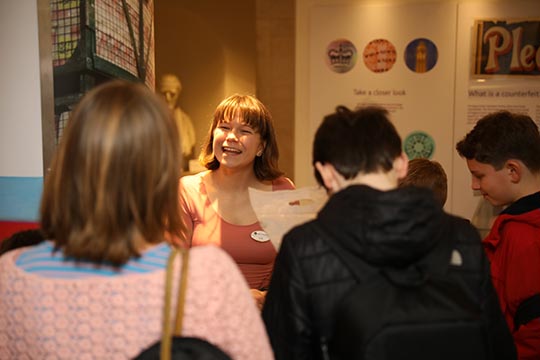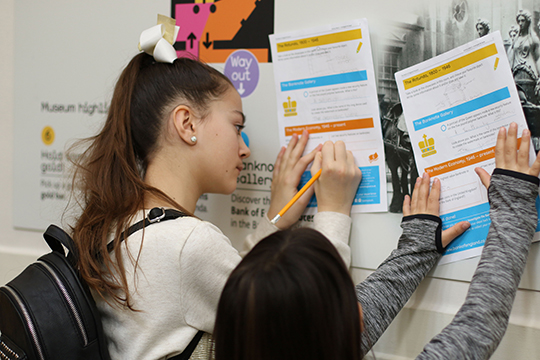All school groups are very welcome to the visit the Bank of England Museum, which is free to enter. We’re delighted to welcome groups from both independent and state schools.
We have a small museum with limited resources, and therefore have to prioritise some of our work. We offer short presentations of around 45 minutes in the museum to state school groups on the basics of the Bank’s role and its history. Education resources are also available for all schools on our website free of charge.
Economics as an academic subject is less widely taught in non-selective state schools than independent schools. To put this into context, about half of comprehensive schools offer economics at A Level, compared to about three-quarters of independent schools.
The statistics at degree level are more striking: over 7% of independently educated male undergraduates are studying economics, compared to 1% for female undergraduates from state schools. See this paper from the Institute for Fiscal Studies for more details.
We are supporting efforts by the Royal Economic Society to promote the subject to under-represented groups through its Discover Economics campaign. It aims to widen access to economics as an academic subject and the wider profession for under-represented groups, which includes women, state-school educated pupils and ethnic minorities.
The Bank of England adopts a data-led targeted approach to its outreach and education activities, reflecting key guidance from the Social Mobility Foundation. In 2022 the Bank submitted to the Employer Index Report and featured in the top 75 employers (placed at number 39).
Our objective here is not to deny access to any particular group to our educational resources. As noted above, the overwhelming majority of the latter are available to all. By providing short additional introductory presentations to state-school students, our aim is to help encourage a similar interest in economics amongst them as we already see in their independently-educated counterparts.




